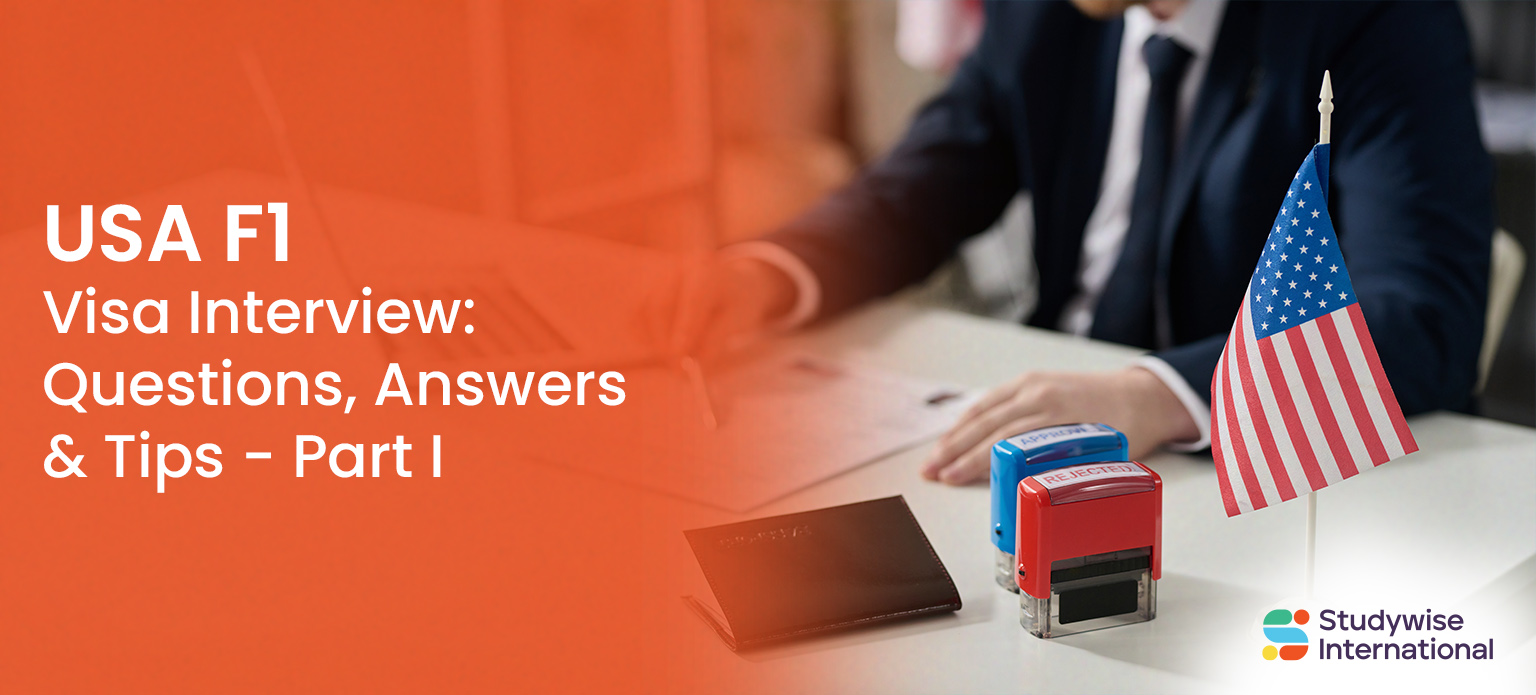
USA F1 Visa Interview: Questions, Answers & Tips – Part I
- Categories All Study in Abroad Blogs, Study in the US
- Date July 31, 2024
The USA has one of the toughest visa processes. From strict guidelines to vigorous interviews and screening process. It selects international students on the basis of multiple aspects. Particularly, their interview is a hurdle most fail to cross.
The USA Student Visa interview comprises varied categories of questions. The five major categories are Personal Information and Preferences, Family, Academia, Finances and Future Plans. Students must prepare for questions relevant to these categories to clear the interview, and thence, attain an F1 visa. The interview won’t only weigh their answers but their speed and confidence while answering them. In effect, one shouldn’t take too long pondering on a particular topic. It reflects their readiness and seriousness for their aspirations to study in the USA. Consider each question as a chance to tell your story and answer each with clarity, honesty and respect.
In this blog, we will discuss the first two categories and how one must plan to answer those questions.
Personal Information & Preferences
This section includes questions about your interests, hobbies and preferences to determine if your expectations align with what the USA can offer.
"Why do you wish to study in the USA?"
It is a straightforward answer, isn’t it? You want to study in the USA because you applied to their university and they accepted it. However, what the interviewer wants to know is why you chose to study in the USA as opposed to the other leading study destination. This could be a good chance to demonstrate your knowledge of the USA, its universities and course structures.
The benefits of studying in the USA are limited. US universities are known for their academic excellence and diverse programs. I will be able to make the most out of my (name of the program) with the advanced technology and research facilities offered by the university. If I am completely honest, the USA lifestyle has an allure that always kept pulling me. With my course, I will be able to explore Central Park and the Statue of Liberty, see Times Square up close and so on. I would like to take my time to indulge in the different cultures inhabiting the cities too. It would further strengthen my skills when I gain a project or internship under global companies – which the USA has no shortage of.
"Why don’t you want to do this course in India?"
While staying close to home will always be tempting, I wanted to understand my own potential. For that, I need to be in a country that has the platforms and means to fuel my growth. India, at the moment, doesn’t have the educational quality or capacity to provide the same level of education the USA offers. Nor does it provide students with as wide options on subjects. On the other hand, the USA is home to some of the highest-ranking and largest universities in the world. They have a reputation proceeding its name. With the quality of education, research and practical experiences I will receive in the USA, I can seek out global domination.
"Have you been to the US before?" or "What do you know about the American culture?"
Now, this is subjective. If you haven’t visited the US before, a simple no will do. However, make sure to express how much you wish to explore the country. Before the interview, take some time to research America, culture, political views and norms. This question could be better answered with particulars that align with your interests and future goals.
I haven’t really seen much of the US except on the 3-day work trip with my Mum. From what I currently know, I believe my transition to the US will be smooth. For what I don’t, I am excited to find out. As the American culture is quite diverse, one easily finds things they like to indulge in or associate with regardless of where they come from. There are a number of factors that I admire about the US and its people – their love for sports, individualism and freedom of expression, and, of course, the variety of food. If fact, I find India and the USA to be quite similar in certain aspects. Apart from a large number of Indians, both our countries are blessed with long coastlines. Indian lifestyle is largely affected by the proximity of the oceans and I’m excited to see how it does in the US.
"What are your expectations from your course?"
As an Indian, I strongly believe that it is education that can fasten our development. While we may not be able to provide for great minds, we can brighten ours to uplift them. From this course in the USA, I am looking for a change. For me and my people. I wish to expand my knowledge in (subject name), grasp some experience in putting my skills to use and navigate my career through the challenges of my community. And the country, at large.
If you have a family business back home or wish to start one, it would be a great time to mention it.
"Why do you have low scores?"
The question only arises if you, in fact, have low scores in your previous courses or entrance tests. Planning to study abroad can be hectic. Most students are either still in college or have a day job eating up most of their time. Those who don’t have their head running behind the different aspects of the planning. Having an education consultant can simplify the process. When asked about your low scores, you may answer with honesty acknowledging the errors of your ways and how you plan on taking charge better in similar situations.
The idea of studying abroad was too foreign for me or my family when I began the process. While my research told me how to select my course and university, documents and other requirements, it didn’t prepare me to handle everything on my own. I had invested too much time and, in fact, too much of me handling it all single-handedly while still completing my previous course (or serving my notice period at my previous firm). As a result, my scores suffered even when I could have done better. It was then that I realised that only deligating some of these tasks to a professional could have saved me a lot of headspace. I still have room for learning the art of delegation among, I’m sure, many others. And I look forward to gaining such knowledge during my time in the USA.
About Family
"What is your father’s occupation?" or "What is your spouse's occupation"
The answer, at large, doesn’t affect the interview results. The interviewers often use this question to steadily shift the topic from your interest to your family with a comfortable question. It also depicts your family background, financial condition and your involvement in your father or spouse’s life.
My father works in the capacity of a Senior Business Developer for LIC India. He has worked for the Indian government almost all his life. He is, in fact, quite proud of his journey. As he should for it is admirable. Started as an agent, and he has been in this position for about 7 years now. It was he who has taught me that one must love what one does to be fully able to enjoy it. And how utter dedication and hard work can transform your life.
"How many members are in your family?" or "Do you have family, relatives or friends in the USA?"
Well, don’t begin to tell the life stories of each of your family members here. A simple number and their occupations or age might do. As for the relatives and friends in the US, you must mention them. Even if you neither have had any physical or emotional connection with them for years nor the intention to make one. It is okay to mention that too. With this question, the visa authority is trying to understand your intention of staying back and bringing more of your family to later live with you in the USA.
I have a small family. It is just me and my parents. My father, as I mentioned, has a government job while my mother is a homemaker. They both live in our family home in Ahmedabad. Other extended family, too, live in the same state. One of my distant uncles works in the (company name) in (city in the US). We haven’t been in touch since I was a kid but I am hoping to rekindle if the opportunity presents itself. His home must be a bit far from my university so the commute will be trouble. I guess, it would be a good way to spend the holidays.
See what I did here? I slipped in the fact that I have a home with strong roots to come back to. Telling your visa officer that you want to stay in the US for a longer time than your visa permits will impact the outcome. Hence, reason your result to India well and strongly.
Good so far? Hop on the Part – II of the blog.
You may also like

Ireland Intake 2024-25: Universities & Preparation Timeline

TOEFL Scoring System and Validity


